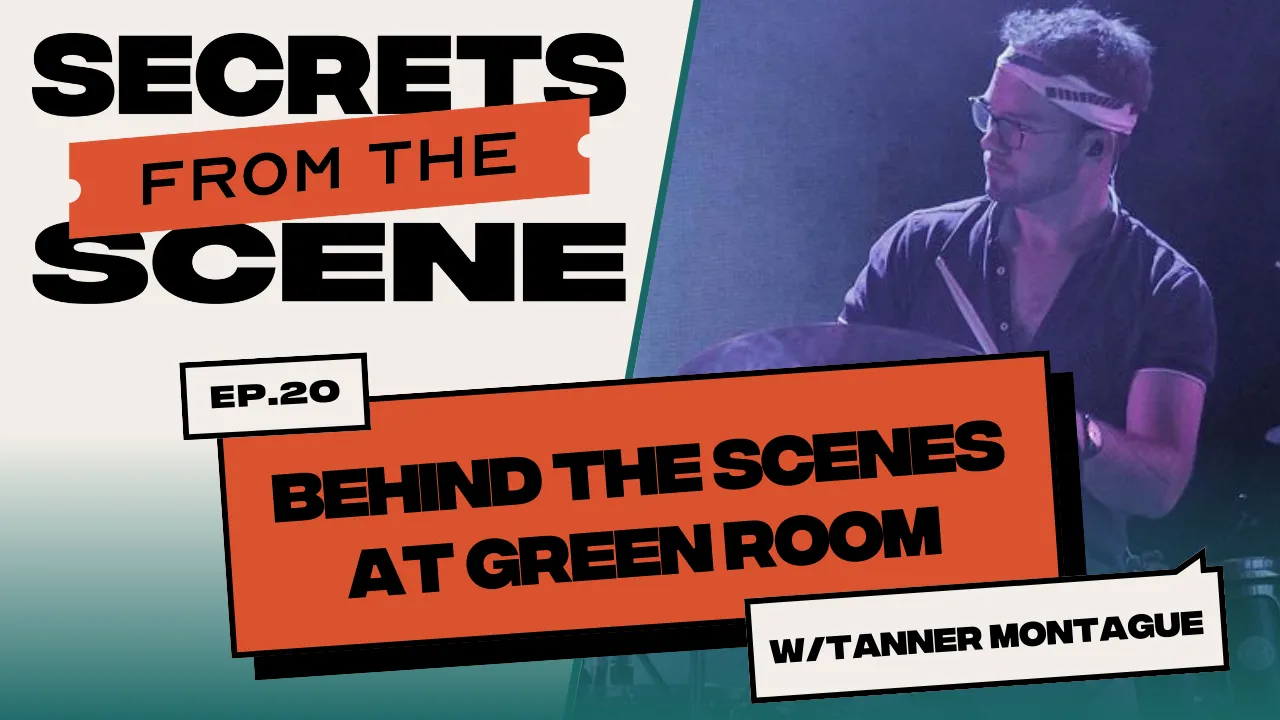Show Notes
For our first local VENUE feature, I’m so happy to have Tanner Montague join the podcast for a behind-the-scenes look at one of the Twin Cities’ newest and finest live music venues. Green Room opened up at the start of 2023, and it’s already made a name for itself amongst local bands. With its musician-first ethos, beautiful aesthetic, balanced sound, full bar/kitchen, and convenient location, Green Room is definitely becoming one of my favorite venues in town.
And the man making it all happen is Tanner Montague. Tanner is also a musician, playing drums in multiple bands and graduating from McNally Smith. Tanner shares his journey from growing up in Washington, drumming on cruise ships, to running a live music venue.
In this episode, you’ll get a glimpse behind the curtain at what it takes to run a venue like Green Room and what’s expected of artists who want to play there. We cover topics such as:
- promoting shows
- setting ticket prices
- proper etiquette on show day
- what makes a live show a “success”
- live-recording options
- tips for improving your stage presence
- and more
Enjoy!
watch now on YouTube:
Episode Links and Mentions
Connect with the Guest
Connect with Me
Give Feedback
📬 Send me a message: stephen@secretsfromthescene.com
💬 Suggest a guest or topic: podcast@secretsfromthescene.com
🎙️ Brought to you by:
--------------------------------
Thank You
This podcast is made possible by the hard work, expertise, and commitment of my team:
Max Greene and Joey Biehn. I'm forever grateful.
--------------------------------
Theme Music: "Thankful" Courtesy of LUEDVIG

